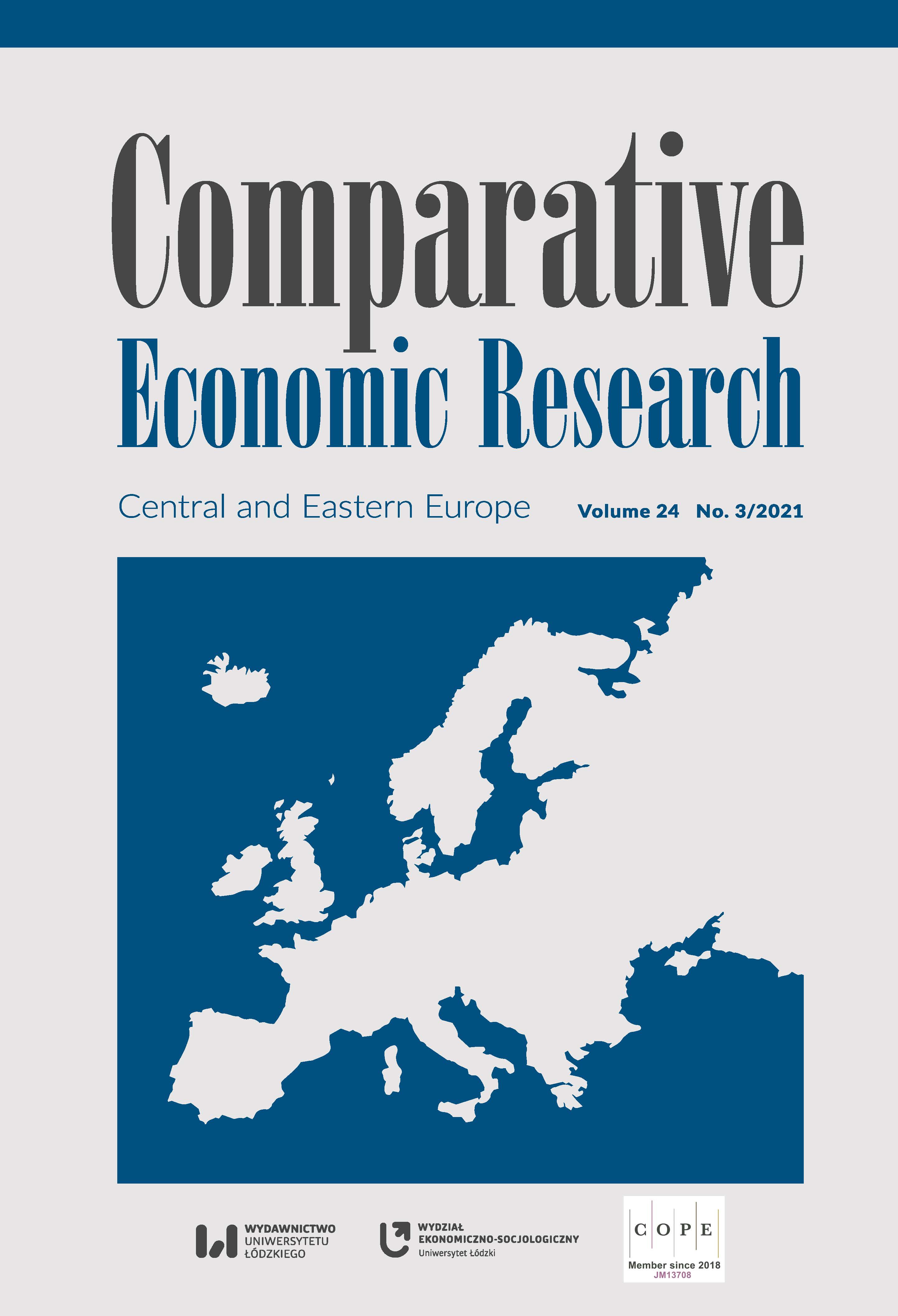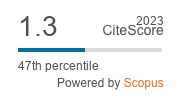Dilemmas of Sheltered Employment in Poland and Greece and the Concept of Supported Employment
DOI:
https://doi.org/10.18778/1508-2008.24.25Keywords:
sheltered employment, supported employment, disabilities, Poland, GreeceAbstract
People with severe disabilities, such as severe mental disabilities and autism spectrum disorders, do not participate in the open, competitive labor market to the same extent as people without disabilities or other forms of disability. Sheltered employment is an internationally accepted approach for the vocational integration of people with severe disabilities, which introduces integration in sheltered workplaces mainly with other people with disabilities and ongoing support from the Government or self-government. Therefore, sheltered employment can be defined as the employment of a person with a disability under particular conditions. This paper presents the legislative framework regarding sheltered employment in Poland and Greece and the ways sheltered employment takes place in each of the two countries with the corresponding comparisons and conclusions. The results show a need for a more precise and more comprehensive legislative framework on sheltered employment in Poland and Greece. Alternative options for the vocational integration of people with severe forms of disabilities, such as supported employment programs, need to come to the fore. Supported employment seems to be the only effective and efficient way for people who have particular difficulties in finding and keeping a paid job in the open labor market to take up paid employment on an equal basis with other people. Does the concept of supported employment have a chance to prove itself on Poland and Greece’s open labor markets and become a complementary tool in the vocational activation of people with disabilities? Legislative regulations, system projects, and stable sources of financing are necessary for both countries.
Downloads
References
Akkerman, A., Janssen, C.G.C., Kef, S., Meininger, H.P. (2016), Job satisfaction of people with intellectual disabilities in integrated and sheltered Employment: An exploration of the literature, “Journal of Policy and Practice in Intellectual Disabilities”, 13 (3), pp. 205–216, https://doi.org/10.1111/jppi.12168
Google Scholar
DOI: https://doi.org/10.1111/jppi.12168
Barczyński, A. (2013), System wsparcia finansowego aktywizacji zawodowej osób niepełnosprawnych na otwartym i chronionym rynku pracy – ewolucja, stan i perspektywy, [in:] M.A. Paszkowicz, M. Garbat (eds.), Osoby z niepełnosprawnościami w polityce społecznej, t. 1: Praca zawodowa, Polskie Towarzystwo Ekonomiczne w Zielonej Górze, Zielona Góra, p. 63–78.
Google Scholar
Barczyński, A. (2016), Skuteczność systemu zarządzania i aktywizacji zawodowej osób niepełnosprawnych, „Niepełnosprawność – Zagadnienia, Problemy, Rozwiązania”, IV (21), pp. 56–80.
Google Scholar
Biuro Pełnomocnika Rządu do Spraw Osób Niepełnosprawnych (n.d.), http://www.niepelnosprawni.gov.pl (accessed: 12.06.2020).
Google Scholar
Burns, T., White, S.J., Catty, J. (2008), Individual placement and support in Europe: The EQOLISE trial, “International Review of Psychiatry”, 20 (6), pp. 498–502, https://doi.org/10.1080/09540260802564516
Google Scholar
DOI: https://doi.org/10.1080/09540260802564516
Cerebral Palsy Greece/Open Door (n.d.), https://www.eps-ath.gr/el/services/programmata-apasxolisis/paragogika-ergastiria.html (accessed: 18.02.2020).
Google Scholar
Cimera, R.E. (2017), The percentage of supported employees with significant disabilities who would earn more in sheltered workshops, “Research and Practice for Persons with Severe Disabilities”, 42 (2), pp. 108–120, https://doi.org/10.1177/1540796917697448
Google Scholar
DOI: https://doi.org/10.1177/1540796917697448
Cimera, R.E., Wehman, P., West, M., Burgess, S. (2011), Do sheltered workshops enhance employment outcomes for adults with autism spectrum disorder?, “Autism”, 16 (1), pp. 87–94, https://doi.org/10.1177/1362361311408129
Google Scholar
DOI: https://doi.org/10.1177/1362361311408129
Damon, J. (2012), Wykluczenie, Oficyna Naukowa, Warszawa.
Google Scholar
Ebuenyi, I.D., Regeer, B.J., Nthenge, M., Nardodkar, R., Waltz, M., Bunders-Aelen, J.F.G. (2019), Legal and policy provisions for reasonable accommodation in employment of persons with mental disability in East Africa: A review, “International Journal of Law and Psychiatry”, 64, pp. 99–105, https://doi.org/10.1016/j.ijlp.2019.02.007
Google Scholar
DOI: https://doi.org/10.1016/j.ijlp.2019.02.007
European Commission (2021), Expenditure by LMP intervention – Greece (source: DGEMPL), https://webgate.ec.europa.eu/empl/redisstat/databrowser/view/LMP_EXPME$EL/default/table?lang=en&category=lmp_expend.lmp_expend_me (accessed: 12.07.2021).
Google Scholar
Eurostat (2019), Self-perceived long-standing limitations in usual activities due to health problem by sex, age and income quintile, https://ec.europa.eu/eurostat/databrowser/view/hlth_silc_12/default/bar?lang=en (accessed: 28.03.2021).
Google Scholar
Garbat, M. (2013), European Policy Models of Employment of People with Disabilities, “Journal of Social Research & Policy”, 4 (1), pp. 47–63.
Google Scholar
García-Villamisar, D., Wehman, P., Diaz Navarro, M. (2002), Changes in the quality of autistic people’s life that work in supported and sheltered employment. A 5-year follow-up study, “Journal of Vocational Rehabilitation”, 17 (4), pp. 309–312.
Google Scholar
Karakioulafi, C., Kanellopoulos, K., Petelczyc, J., Montgomery, T., Baglioni, S. (2020), Patterns of Labour Solidarity Towards Precarious Workers and the Unemployed in Critical Times in Greece, Poland, and the UK, “Sociological Research Online”, https://doi.org/10.1177/1360780420980464
Google Scholar
DOI: https://doi.org/10.1177/1360780420980464
Kober, R., Eggleton, I.R.C. (2005), The effect of different types of employment on quality of life, “Journal of Intellectual Disability Research”, 49 (10), pp. 756–760, https://doi.org/10.1111/j.1365-2788.2005.00746.x
Google Scholar
DOI: https://doi.org/10.1111/j.1365-2788.2005.00746.x
Lament, M. (2017), Quality of Non-Financial Information Reported by Financial Institutions. The Example of Poland and Greece, “Central European Review of Economics & Finance”, 22 (6), pp. 5–16, https://doi.org/10.24136/ceref.2017.023
Google Scholar
DOI: https://doi.org/10.24136/ceref.2017.023
Metzel, D.S., Boeltzig, H., Butterworth, J., Sulewski, J.S., Gilmore, D.S. (2007), Achieving community membership through community rehabilitation provider services: Are we there yet?, “Intellectual and Developmental Disabilities”, 45 (3), pp. 149–160, https://doi.org/10.1352/1934-9556(2007)45[149:ACMTCR]2.0.CO;2
Google Scholar
DOI: https://doi.org/10.1352/1934-9556(2007)45[149:ACMTCR]2.0.CO;2
Migliore, A., Grossi, T., Mank, D., Rogan, P. (2008), Why do adults with intellectual disabilities work in sheltered workshops?, “Journal of Vocational Rehabilitation”, 28 (1), pp. 28–40.
Google Scholar
National Confederation of Persons with Disabilities (NCDP) (2007), Access for people with disabilities to the world of work. Unemployment is the most severe form of social disability, https://www.esamea.gr/files/december/103/3rdDec_2007.pdf (accessed: 21.02.2020). [Εθνική Συνομοσπονδία Ατόμων με Αναπηρία (Ε.Σ.Α.μεΑ.). (2007), Η πρόσβαση των ατόμων με αναπηρία στον κόσμο της εργασίας. Η ανεργία είναι η πιο σκληρή μορφή κοινωνικής αναπηρίας].
Google Scholar
Osinska, M., Kluth, K. (2010), Convergence of Greek Economy with the EU and Some Comparisons with Polish Experience, “European Research Studies Journal”, XIII (4), pp. 139–156, https://doi.org/10.35808/ersj/304
Google Scholar
DOI: https://doi.org/10.35808/ersj/304
Paszkowicz, M. (2013), Zatrudnienie osób z niepełnosprawnościami: Ku otwartemu rynkowi pracy, [in:] M.A. Paszkowicz, M. Garbat (eds.), Osoby z niepełnosprawnościami w polityce społecznej, t. 1: Praca zawodowa, Polskie Towarzystwo Ekonomiczne w Zielonej Górze, Zielona Góra, pp. 37–62.
Google Scholar
Stevens, P., Martin, N. (1999), Supporting Individuals with Intellectual Disability and Challenging Behaviour in Integrated Work Settings: An Overview and a Model for Service Provision, “Journal of Intellectual Disability Research”, 43 (1), pp. 19–29, https://doi.org/10.1046/j.1365-2788.1999.43120169.x
Google Scholar
DOI: https://doi.org/10.1046/j.1365-2788.1999.43120169.x
Tsang, H.W.H., Chan, A., Wong, A., Liberman, R.P. (2009), Vocational outcomes of an integrated supported employment program for individuals with persistent and severe mental illness, “Journal of Behavior Therapy and Experimental Psychiatry”, 40 (2), pp. 292–305, https://doi.org/10.1016/j.jbtep.2008.12.007
Google Scholar
DOI: https://doi.org/10.1016/j.jbtep.2008.12.007
Vocational Rehabilitation Center for Persons with Disabilities (n.d.), http://www.kea-amea.gr/index.php/gr/ergasthria (accessed: 18.02.2020).
Google Scholar
Wang, Y.-T., Lin, Y.-J., Shu, C.-H. (2012), Cost-benefit analysis for sheltered employment service programs for people with disabilities in Taiwan − a preliminary study, “Disability and Rehabilitation”, 34 (19), pp. 1672–1676, https://doi.org/10.3109/09638288.2012.656786
Google Scholar
DOI: https://doi.org/10.3109/09638288.2012.656786
Wehman, P., Taylor, J., Brooke, V., Avellone, L., Whittenburg, H., Ham, W., Carr, S. (2018), Toward competitive employment for persons with intellectual and developmental disabilities: What progress have we made and where do we need to go, “Research and Practice for Persons with Severe Disabilities”, 43 (3), pp. 131–144, https://doi.org/10.1177/1540796918777730
Google Scholar
DOI: https://doi.org/10.1177/1540796918777730
Act of 27 August 1997 on Vocational and Social Rehabilitation and Employment of Persons with Disabilities (Journal of Laws 2018, item 511) [in Polish].
Google Scholar
Explanatory Report Law 4412/2016.
Google Scholar
Law 2646/1998 “Development of the National Social Care System and other provisions”, OGG A” 236.
Google Scholar
Law 4412/2016 “Public Works, Supplies and Services Contracts (Adaptation to Directives 2014/24/EU and 2014/25/EU)”, OGG A” 147.
Google Scholar
L. 4413/2016 “Award and execution of concession contracts – Harmonization with European Directive 2014/23/EU of the European Parliament and of the Council of 26 February 2014 on the award of concession contracts (OJ L 94/1/28–3–14) and other provisions”, OGG A” 148.
Google Scholar
Regulation of the Polish Minister of Labor and Social Policy of 19 December 2007 regarding the Company Fund for the Rehabilitation of the Disabled (Journal of Laws 2013, item 1300) [in Polish].
Google Scholar
Downloads
Published
How to Cite
Issue
Section
License

This work is licensed under a Creative Commons Attribution-NonCommercial-NoDerivatives 4.0 International License.











